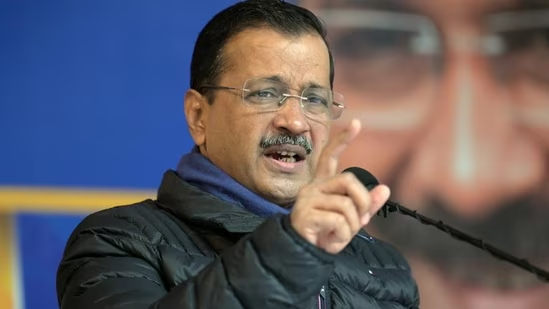As the 2025 Delhi Assembly elections approach, Arvind Kejriwal and his Aam Aadmi Party (AAP) have made a bold announcement aimed at securing a third consecutive term. In a bid to win over voters ahead of the February 5 election, Kejriwal proposed that, if re-elected, the Delhi government would offer financial assistance to Resident Welfare Associations (RWAs) to help them hire private security guards for neighborhood safety. This proposal reflects the AAP’s ongoing focus on welfare-driven policies, with an emphasis on improving public safety amid rising concerns in urban areas.
This new initiative is part of a broader suite of promises designed to appeal to diverse voter groups, particularly those concerned about law and order in their communities. The move comes at a time when crime rates in urban areas have prompted citizens to take security into their own hands. By offering financial support for private guards, the AAP seeks to empower RWAs to bolster neighborhood security without placing additional financial burdens on residents.
Kejriwal’s offer is not the only new measure being introduced as part of the party’s election pitch. The AAP has also promised several other welfare schemes designed to address specific community needs. These include a ₹2,100 monthly honorarium for women, free healthcare services for senior citizens, and ₹10 lakh insurance coverage for auto drivers. These proposals are aimed at consolidating the party’s appeal among key voter segments, including women, the elderly, and working-class citizens, who form the backbone of Delhi’s electorate.
The AAP’s strategy comes as the party faces its most competitive election yet. The Bharatiya Janata Party (BJP) and Congress are both vying to unseat the AAP after two terms in power. The BJP, in particular, has mounted a strong campaign focused on challenging the AAP’s record on governance and public safety. Meanwhile, Congress is hoping to regain its foothold in Delhi politics after years of declining influence. As these two major political forces look to wrest control of the 70-seat Delhi Assembly, the AAP is focusing on its record of welfare schemes as a major selling point to counter any anti-incumbency sentiment.
The AAP’s track record includes initiatives like free electricity, improved government schools, mohalla clinics, and free bus rides for women, all of which have been central to the party’s electoral strategy. With these new promises, Kejriwal is looking to further entrench AAP’s position as the party of social welfare. By offering benefits to specific groups like women, the elderly, and auto drivers, the AAP hopes to reinforce its image as a pro-people, welfare-driven party.
The Delhi election, scheduled for February 5, will be a single-phase poll, with the counting of votes set for February 8. The voter list includes 1.55 crore eligible voters, comprising 83.49 lakh men, 71.74 lakh women, and 1,261 transgender persons. The election process will conclude by February 10, and all candidates must file their nominations by January 17. The scrutiny of nominations will take place by January 18, and candidates will have until January 20 to withdraw their nominations.
The Election Commission has assured that the election process will be fair and transparent, with Chief Election Commissioner Rajiv Kumar clarifying that there will be no arbitrary deletions of voter names from the electoral rolls. The election will be closely watched, as the AAP seeks a third consecutive term in power amidst stiff competition from both the BJP and Congress.
As the election campaign intensifies, Kejriwal’s offer to sponsor private security guards for RWAs is expected to be a key talking point, particularly among residents who are concerned about safety in their localities. With a mix of welfare proposals targeting various sections of society, the AAP is hoping to retain its grip on power in Delhi, despite mounting political pressure from its rivals.
BY – KARTIK




